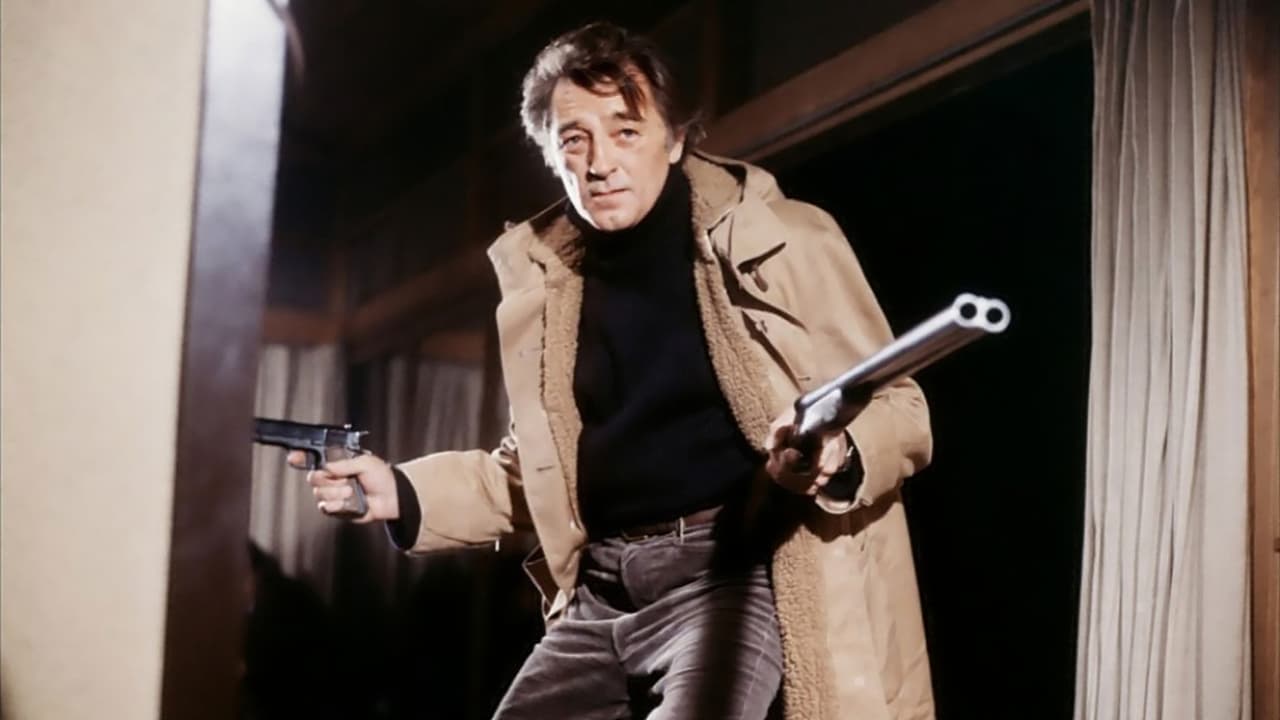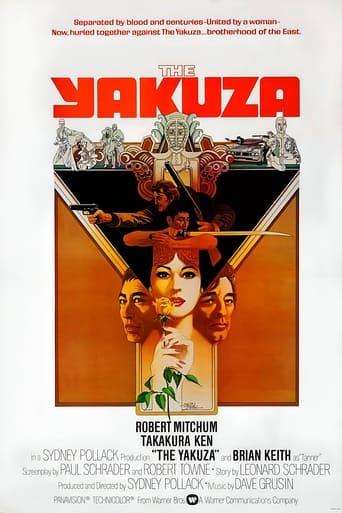

I've got little to say other than I am a movie buff and This may be the best movie I have ever seen. Oh, I have been watching movies for 60 years. Just in case someone thinks I haven't seen anything.
... View Morefor a lover of old classic cinema, a must see. for a story about duty, past and duty. for inspired script and for the smart use of clichés. and, sure, for Robert Mitchell in a role who seems be perfect for him. because Japan of "Yakuza" has the gift to be a complex and realistic portrait . traditions, history, crime, the war against a powerful organization. and, sure, an admirable story of friendship. short, one of films for see it time by time.
... View MoreI am writing this as a lifelong movie fan, a great admirer of Sydney Pollack's skill at directing everything from the genres of "Jeremiah Johnson" to "Tootsie" to "Out of Africa," someone with a graduate degree in Japanese psychological anthropology from Sophia University, Tokyo, and someone who lived in Japan for 30 years. A cheesy gaijin's (外人の)impression of Japan, "The Yakuza" is chock full of stereotypical things and scenes one will never see in Japan due to strict laws, heavy law enforcement, and the astronomical price of real estate in urban Japan. Immediately after World War II, the Japanese firearm and sword law effectively prohibited the private ownership of both guns and swords. Yet, in "The Yakuza," Herb Edelman's house in Kyoto is an arsenal of swords and firearms openly displayed on the walls. He owns even more guns hidden in drawers. Without any visible means of support, Herb Edelman owns a house in the Kyoto area that is financially impossibly spacious and full of items, such as a huge "Japanese lantern" that looks like he stole it from a shinto shrine. "Gaijin," written 外人 in kanji, is the term that Japanese people colloquially (and rather insultingly) use for "foreigner." It is composed of two characters that literally mean "outside person."
... View MoreThis film has a strong reputation built on Schrader and Towne's writing talent and with a cast and director all in good form. While it may have been seen as strong in its time; it has faded considerably over 30 years later.Starting with the writing, it is functional but somewhat inert and lifeless and this dryness is exemplified in a scene in a kitchen when a Japanese character tells the young American what the Yakuza are and it's a straight recitation that might have been lifted from an encyclopedia. It would be unusual for an English speaker to say such a thing in that way, but for a Japanese saying it is just bad writing and editing. Then there is the long expositions of back story and how Japan is different; and also the dreaded Western perceptions of Japanese myth and ritual. All that Asian mysticism bound up with warrior culture is well beyond its use by date now. It was new in 1974, but that dates the film and its sensibility very strongly.Then there is Mitchum and Keith. Mitchum was a straight up no nonsense actor and worked well as a tough guy, but here he is too stony faced; too much like a dead fish and wooden that it drags on the film. He stands, speaks and reacts but hardly acts. Keith is not much more interesting and a lesser presence. It's not helped by direction that is sluggish, lacking dynamic energy and close to a "Starsky and Hutch" episode.Overall, a rather mediocre effort from a team that had some great highs and was very capable, but this is not one of their best. As such it has not lasted very well.
... View More